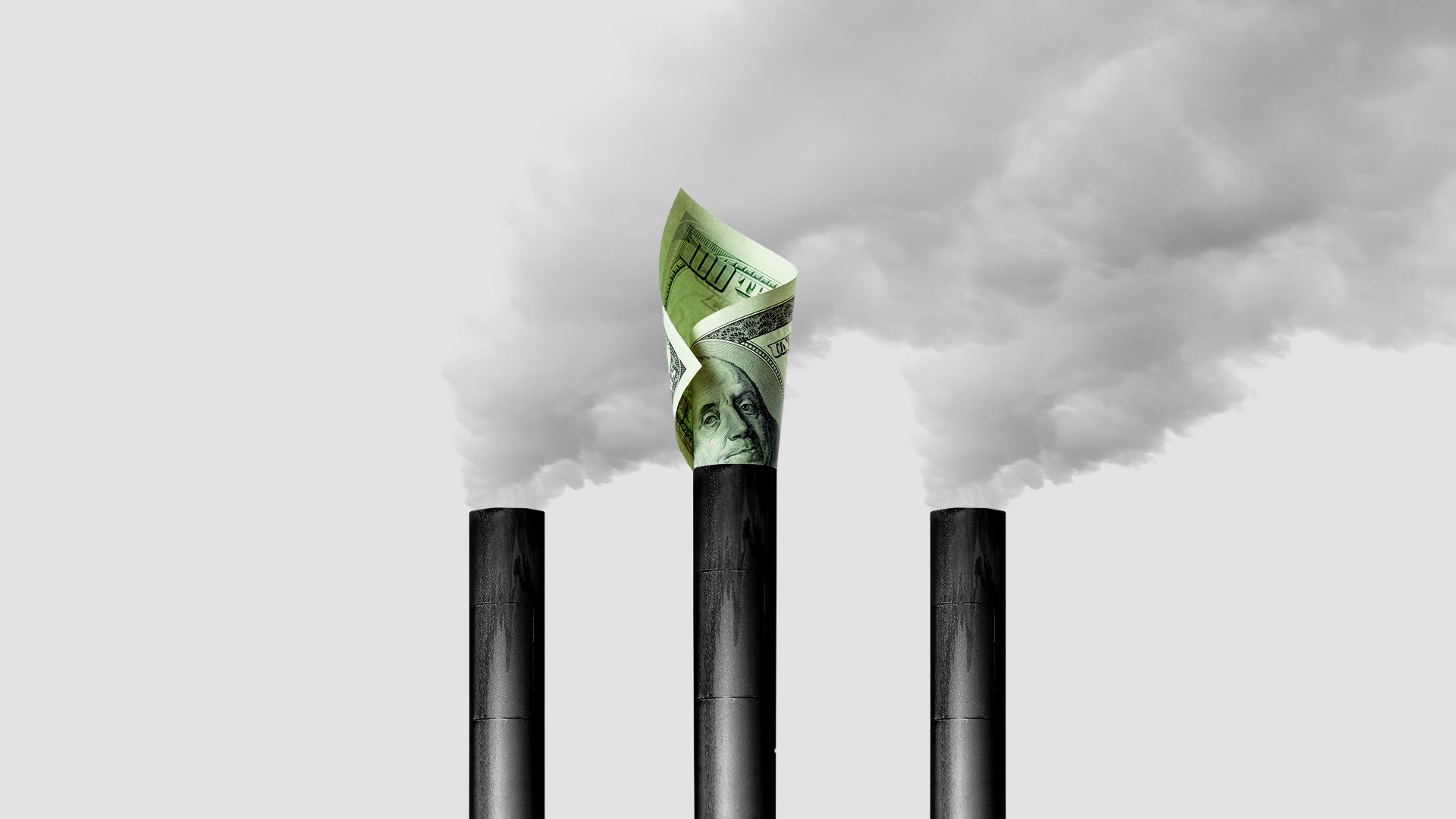Exclusive: Bipartisan House group revives carbon tax bill
Add Axios as your preferred source to
see more of our stories on Google.

Illustration: Rebecca Zisser/Axios
A bipartisan handful of House members are introducing carbon tax legislation today after first floating it late last year.
Why it matters: While it’s very unlikely to become law in at least the next few years, it’s nonetheless a marker for efforts to move national carbon pricing beyond the think tank and advocacy world where it’s been for a decade and back into Congress.
The details: Florida Democrat Ted Deutch unveiled the bill with a few other Democrats and one Republican. The bill would impose an initial $15-per-ton carbon "fee" on fossil fuel producers, processors and importers that rises $10 annually.
- All the revenues are returned to the public.
- The plan would remove some but not all greenhouse gas regulations.
- Rep. Francis Rooney (R.-Fla.), is the only Republican co-sponsor as of now. GOP Rep. Brian Fitzpatrick of Pennsylvania had signed onto last year’s bill, but he isn’t (yet anyway) a co-sponsor of this bill. A request for comment to his office wasn't immediately returned.
The big picture: After a near decade’s absence in Washington, debate over big climate and energy policies are emerging in Washington as Democrats take control of the House and the presidential campaign heats up.
- Bipartisan efforts are emerging on a carbon tax, while progressive Democrats are rallying around the vague-but-popular Green New Deal, that calls for 100% renewable electricity within a decade and several other big policies aimed at transforming the economy while cutting emissions. (It could include a price on carbon, but that isn't its central component.)
Go deeper:

